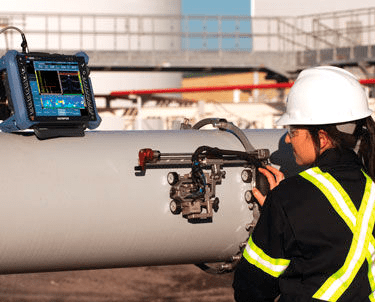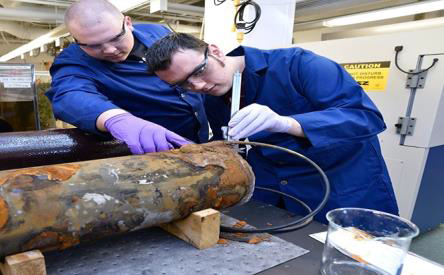COURSE OVERVIEW
FE0580 : API-579/580/581: Risk-Based-Inspection (RBI), Fitness-for-Service (FFS) and Repair Practices of Pipelines, Piping, Vessels and Tanks in Refineries, Gas, Oil and Petrochemical Facilities

OVERVIEW
| COURSE TITLE | : | FE0580 : API-579/580/581: Risk-Based-Inspection (RBI), Fitness-for-Service (FFS) and Repair Practices of Pipelines, Piping, Vessels and Tanks in Refineries, Gas, Oil and Petrochemical Facilities |
| COURSE DATE | : | Mar 04 - Mar 07 2024 |
| DURATION | : | 4 Days |
| INSTRUCTOR | : | Mr. Luis Manuel |
| VENUE | : | Al Khobar, KSA |
| COURSE FEE | : | $ 4500 |
| Request For Course Outline | ||
OTHER SCHEDULED DATES
| Date | : | Mar 03 - Mar 07 (5 Days) | Location | : | Dubai, UAE | Classroom Fee (US$) | : | $ 5500 | Course Info |
| Date | : | Jun 24 - Jun 27 (4 Days) | Location | : | Abu Dhabi, UAE | Classroom Fee (US$) | : | $ 4500 | Course Info |
| Date | : | Sep 16 - Sep 19 (4 Days) | Location | : | Dubai, UAE | Classroom Fee (US$) | : | $ 4500 | Course Info |
Course Description
This practical and highly-interactive course includes various practical sessions and exercises. Theory learnt will be applied using our state-of-the-art simulators. This course presents a comprehensive and practical introduction and application of the latest techniques in RiskBased Inspection (RBI) planning, and Fitness-For-Service (FFS) analysis of inspection results. It discusses practical techniques for the analysis of equipment, piping and pipelines defects and degradation. The focus of the course is on predicting degradation in service, setting optimum inspection intervals (API 580-581), projecting remaining life based on generic data corrected for plant specific conditions, and applying quantitative analysis for degraded conditions to determine whether equipment is fit for continued service or should be repaired or replaced (API 579-1/ASME FFS-1, ASME B31G, etc.). The course includes a discussion on identification of API RP 571 damage mechanisms, risk management, and risk mitigation strategies. Requirements for input data and information, and the roles of the RBI Assessment Team will be described. Approaches to levels of RBI assessment and basis for implementation will be examined.The exercise will give Delegates the opportunity to key elements for implementation of an RBI system to a process facility. The course presenters are independent of any commercial organization and the Course Notes are applicable to all commercially available systems.
link to course overview PDFTRAINING METHODOLOGY
This interactive training course includes the following training methodologies:
LecturesWorkshops & Work Presentations
Case Studies & Practical Exercises
Videos, Software & Simulators
In an unlikely event, the course instructor may modify the above training methodology for technical reasons.
VIRTUAL TRAINING (IF APPLICABLE)
If this course is delivered online as a Virtual Training, the following limitations will be applicable:
| Certificates | : | Only soft copy certificates will be issued |
| Training Materials | : | Only soft copy materials will be issued |
| Training Methodology | : | 80% theory, 20% practical |
| Training Program | : | 4 hours per day, from 09:30 to 13:30 |
RELATED COURSES

FE0771 : Ultrasonic Testing Level-II Training & Certification (ASNT, SNT-TC-1A)
- Date: Nov 09 - Nov 13 / 3 Days
- Location: Dubai, UAE
- Course Details Register

FE0990 : Equipment, Materials, Production & Services Certification Auditor in Oil & Gas Industry
- Date: Nov 09 - Nov 13 / 3 Days
- Location: Dubai, UAE
- Course Details Register

FE0630 : Material Certification Management
- Date: Nov 10 - Nov 14 / 3 Days
- Location: Al Khobar, KSA
- Course Details Register

FE0433 : Welding Defects Analysis
- Date: Nov 09 - Nov 13 / 3 Days
- Location: Doha, Qatar
- Course Details Register
